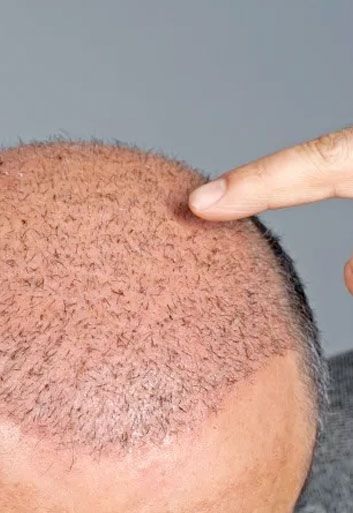Introduction
Premature ejaculation (PE) is a common sexual concern that can have complex causes, including both physical and psychological factors. This article explores the significant role of psychological factors in premature ejaculation with insights from the
best sexologist in Gurgaon. Understanding these factors is crucial for effective management and improved sexual well-being.
1. Performance Anxiety
Performance anxiety is a primary psychological factor contributing to premature ejaculation. The fear of not satisfying a partner or meeting expectations during sexual intercourse can lead to heightened stress and anxiety. This anxiety can accelerate the ejaculation process, creating a cycle of worry and quick ejaculation.
2. Stress and Psychological Distress
Chronic stress, anxiety, and psychological distress can trigger or exacerbate premature ejaculation. Mental health issues such as depression and anxiety disorders can impact sexual function and the ability to control ejaculation. Elevated stress levels can also affect hormonal balance and overall sexual response.
3. Negative Self-Perception
Individuals with premature ejaculation often develop negative self-perceptions related to their sexual abilities. This can lead to reduced self-esteem, self-confidence, and overall sexual satisfaction. The resulting anxiety and self-doubt can further contribute to quick ejaculation.
4. Relationship Dynamics
Relationship factors play a significant role in premature ejaculation. Poor communication, emotional distance, or unresolved conflicts between partners can increase performance anxiety and stress. A lack of emotional intimacy can further exacerbate the psychological burden of PE.
5. Fear of Rejection
The fear of rejection due to premature ejaculation can lead to avoidance of sexual intimacy. Negative past experiences or feelings of inadequacy can contribute to this fear. This avoidance can reinforce anxiety and worsen the condition over time.
6. Sensation and Arousal
Psychological factors influence the way individuals perceive and respond to sexual stimulation. Overly heightened arousal, inability to manage sensations, or difficulties in recognizing the "point of no return" can lead to premature ejaculation.
7. Cognitive Patterns
Negative cognitive patterns, such as catastrophic thinking and excessive focus on performance, can contribute to the occurrence of premature ejaculation. These thought patterns create a self-fulfilling prophecy by increasing anxiety and accelerating ejaculation.
8. Coping Mechanisms
Individuals may develop maladaptive coping mechanisms to deal with premature ejaculation, such as avoiding sexual encounters or using substances. These mechanisms can exacerbate the psychological impact and hinder healthy sexual functioning.
Conclusion
Psychological factors significantly influence premature ejaculation, highlighting the importance of a holistic approach to its management. Consulting the best sexologist in Gurgaon can provide individuals with personalized strategies, behavioral techniques, counseling, and support to address these psychological factors effectively. By addressing performance anxiety, stress, negative self-perception, and relationship dynamics, individuals can achieve better ejaculatory control and enjoy a satisfying and fulfilling sexual life.




Comments
Post a Comment